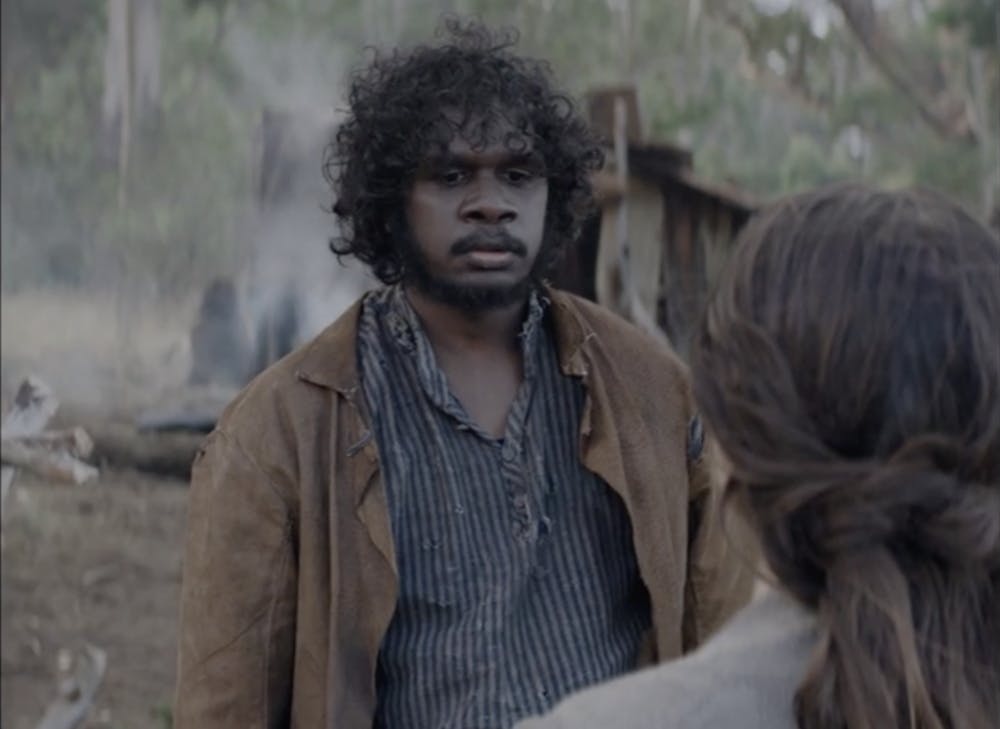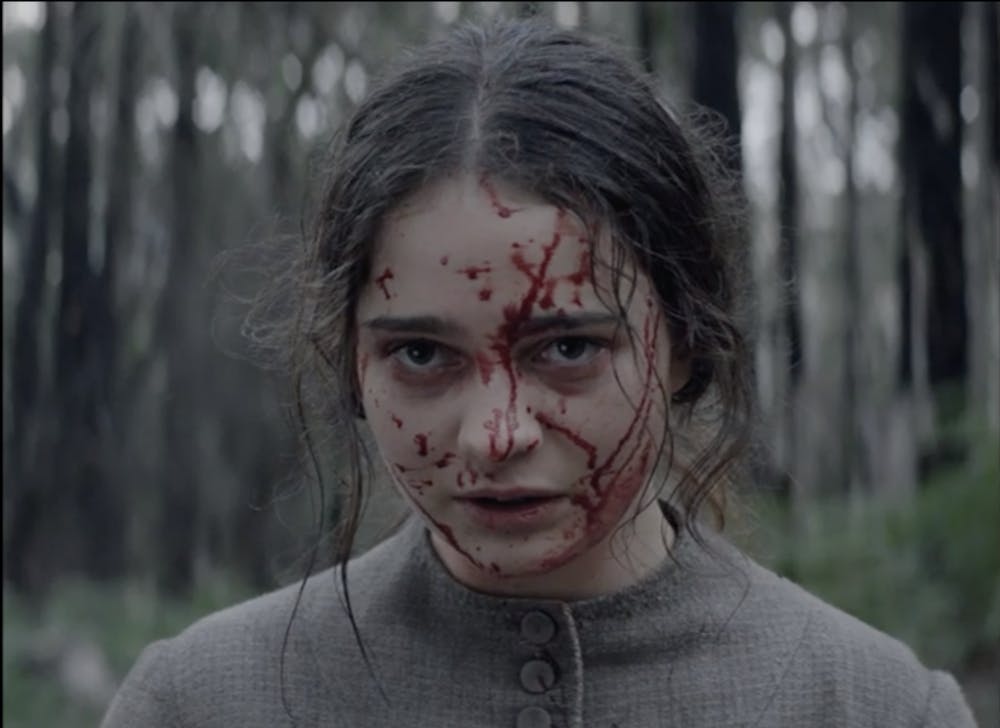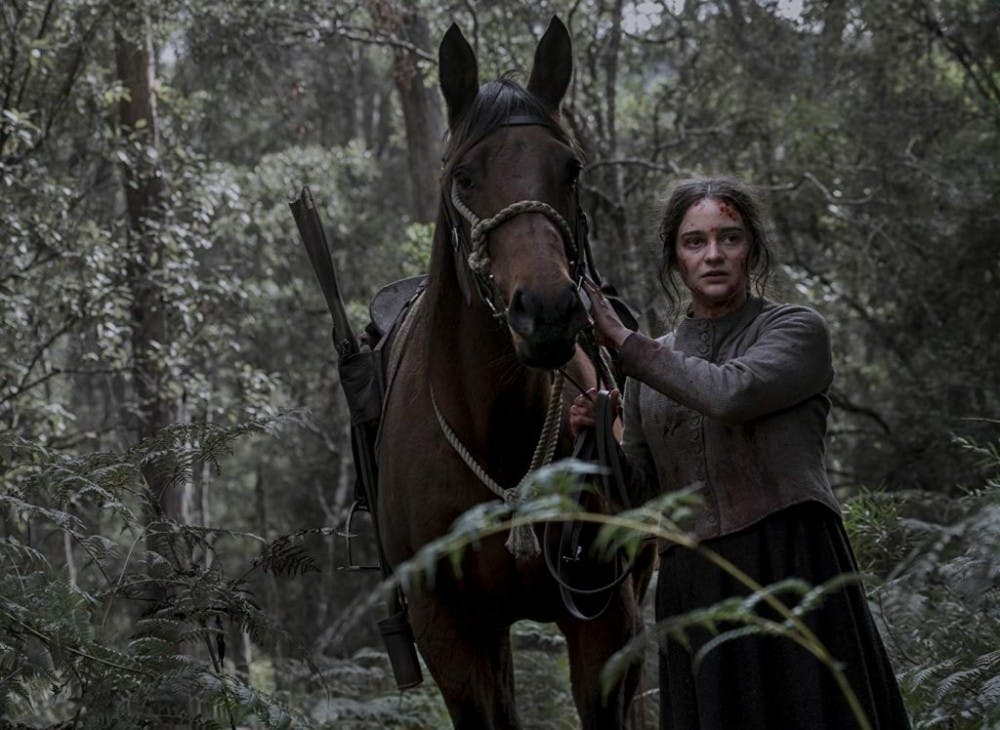Australian auteur Jennifer Kent has made a name for herself in recent years. She rose to prominence with her 2014 directorial debut The Babadook. The film was about a single mother who must protect her son from a supernatural threat that escaped a children’s book and now lurks within their home. It was fantastic in how it created horror through its atmosphere, as well as making the audience feel unsettled and frightened. The Babadook received critical acclaim, including praise from The Exorcist director William Friedkin. Now, Kent brings her first feature film in five years with the excellent period thriller, The Nightingale.
The film is set in 1825 Tasmania, then known as the penal colony of Van Diemen’s Land. It follows Clare (Aisling Franciosi), an Irish convict who lives with her husband, Aidan (Michael Sheasby), and their infant daughter. The husband and wife work at a military outpost and yearn to one day earn freedom. Clare’s world is destroyed when a British officer named Hawkins (Sam Claflin) and his men rape her and kill her family. Unable to get justice from the British authorities, she decides to track down Hawkins, who has left to take a captain position up north. To this end, she hires Billy (Baykali Ganambarr), an aboriginal tracker to help find them. With both of them having with pasts full of violence, the two set out for revenge against the backdrop of Tasmania’s Black War.
Brilliant, award-worthy acting

Image from IMDb
The film features amazing, moving performances from its entire cast. The best performances of the entire cast come from both its protagonist and antagonist. Aisling Franciosi gives an incredibly powerful performance as Clare. She shows off a wide range of emotions throughout the film, from righteous, wrathful fury to haunting sorrow and sadness. Sam Claflin, on the other hand, is brilliant as Hawkins. He’s completely unrecognizable in the role, giving a truly transformative performance. He perfectly shows what a complete monster Hawkins is and how cold and reprehensible he can be. Claflin also perfectly portrays how the officer’s sanity, along with what little humanity he has left, slowly erodes away as his journey progresses. I can easily see both of these performances getting several nominations come award season.
While these two performances steal the show, the supporting cast is also good. Baykali Ganambarr is fantastic as Billy. He perfectly captures how his partnership with Clare is filled with mutual distrust, which changes throughout the film. He also portrays sorrow at how his homeland has been stolen from his people, which is brilliantly shown in one powerful scene where he breaks down after having witnessed so many atrocities against the Aboriginal. Damon Herriman’s performance as Ruse, a soldier under Hawkins’ command, perfectly captures a sleazy, disgusting human. While his character does not change throughout the film, there are times where Herriman also shows how pathetic and almost pitiable Ruse can be.
A beautifully bleak presentation

Image from IMDb
Something I picked up on when I watched The Babadook is how Jennifer Kent presents her films, particularly the cinematography. This still rings true for The Nightingale. The film is fantastically shot, especially in how it portrays the Tasmanian wilderness. It features several varied shots, which show off the wide and varied landscapes of Tasmania. While beautiful, it also looks incredibly bleak and gray, which perfectly captures the tone of the movie.
While not a horror film, Kent’s experience in directing the genre is perfectly shown in the nightmares that Clare has throughout the film. It isn’t apparent when they start as it easily transitions from reality to dream. Each of the nightmares that Clare has are incredibly haunting, yet left me spellbound as I watched them. While not as intense or scary as anything in The Babadook, they still capture a similar chilling atmosphere.
However, the one thing that will make or break the movie is the violence. The movie is brutal and uncompromising in its portrayal of violence, which includes two rape scenes and a vicious, drawn out death scene. This attracted some amount of controversy when the film was shown at the Sydney Film Festival. It caused thirty people to walk out, with one woman saying “Why should I care? She’s been raped twice.” However, Kent has stood by her film, saying that the violence is necessary in portraying the colonial violence and racism that was prevalent during this time period. And I, for one, I agree with her. We need movies like these to be honest in their depiction, so we can learn from the past. I’d rather have a movie not hold my hand and be honest rather than having it sugar coat the past to make it more palatable.

Images: IMDb
Featured Image: IMDb
For more entertainment related content, visit us at Byte BSU!




















